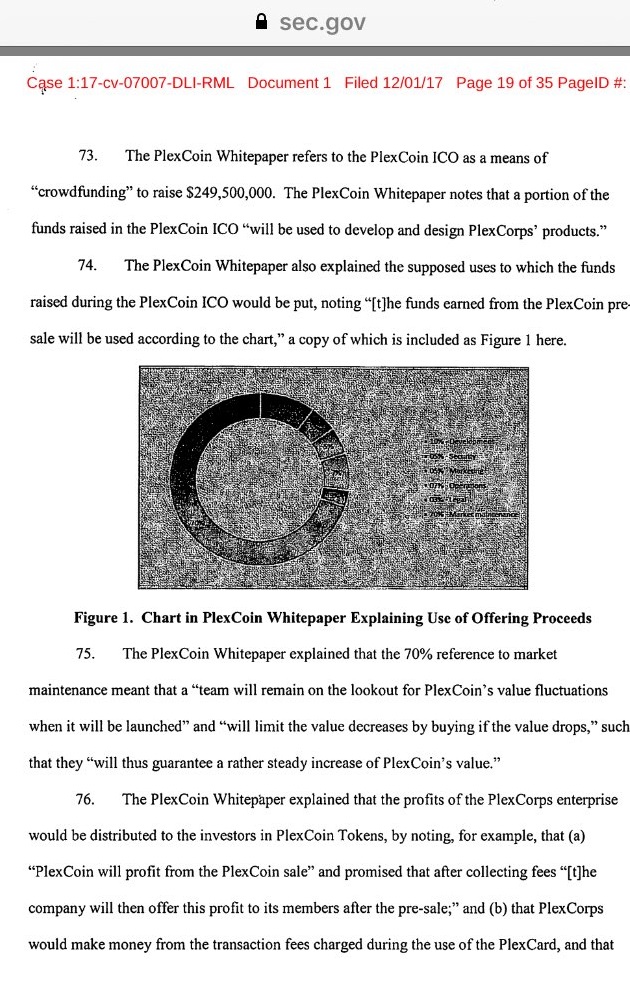
US Securities and Exchange Commission (SEC) announced today its newly created Cyber Unit has filed a complaint against a Canadian initial coin offering (ICO) fraud “that raised up to $15 million from thousands of investors since August by falsely promising a 13-fold profit in less than a month.” It’s the first such charges put forward by the new division, according to the SEC, and could mark a turning point in regulators’ aggressiveness.
Also read: Former SEC Commissioner: Initial Coin Offerings “Open and Notorious Violation” of Law
SEC Cyber Unit Files its First Charges
These pages alerted readers to the creation of the SEC’s Cyber Unit over two months ago, and shortly after detailed the first nab of an elaborate ICO scheme. But the agency wishes to highlight its Cyber Unit, and mainstream media outlets have gobbled it up.
Release 2017-219, SEC Emergency Action Halts ICO Scam, termed Canadian Dominic Lacroix “a recidivist Quebec securities law violator.” Mr. Lacroix and his company, Plex Corps, are accused of offering a token capable of yielding “a 1,354 percent profit in less than 29 days.”
The regulator was able to freeze the assets of those involved, including Mr. Lacroix and Plex Corps.
Mr. Lacroix was found in contempt of court in October of this year, “following an application filed by the Autorité des marchés financiers,” the Quebec-based regulator noted. This came after a Tribunal over the Summer found Mr. Lacroix guilty of violating securities law.

White Papers are Now Evidence
Beyond courts and government regulators, Twitter seems the better bet when it comes to ferreting out scams ahead of officials. Attorney Stephen Palley bragged how he warned about Plex Corps with the quip, “Remember how I told you that whitepapers are evidence?”
Government regulators notoriously miss many times more than they ever prevent or capture, and never tire from self-congratulation. “This first Cyber Unit case hits all of the characteristics of a full-fledged cyber scam and is exactly the kind of misconduct the unit will be pursuing,” the Cyber Unit Chief, Robert Cohen, is quoted. “We acted quickly to protect retail investors from this initial coin offering’s false promises.”
The Cyber Unit has existed since Fall of this year, and its charter seems to be “misconduct involving distributed ledger technology and initial coin offerings, the spread of false information through electronic and social media, hacking and threats to trading platforms,” which can strike a reader as quite broad.
The unit’s complaint charges Mr. Lacroix with “violating the anti-fraud provisions… with violating the registration provision… of the U.S. federal securities laws.” It also “seeks permanent injunctions, disgorgement plus interest and penalties.” Should he be convicted, Mr. Lacroix will be prevented from the regulated industry as a whole.

Cryptocurrency to the Maximum
Plex Corps offered Plex Coin, “the next decentralized worldwide cryptocurrency, based on the Ethereum structure. Its mission is to broaden the possibilities of uses and to increase the number of users by simplifying the process of managing cryptocurrency to the maximum.”
Soft details include a transaction “comparison to Bitcoin (45 minutes), the transactions (deposit, withdrawal, purchase, sale, transfer) of Plex Coin are confirmed faster (30 seconds) and they have increased storage efficiency,” the site claims.
It seems the most distinguishing feature now for Plex Coin are its mounting legal troubles.
What do you think of the Cyber Unit? Tell us in the comments below.
Images courtesy of Pixabay, Twitter, Plex Corp.
Do you like to research and read about Bitcoin technology? Check out Bitcoin.com’s Wiki page for an in-depth look at Bitcoin’s innovative technology and interesting history.
Jamie Redman and Kai Sedgwick contributed sources for this article.
